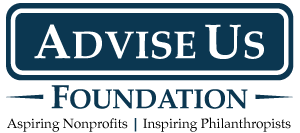Bequests are the third highest source of income for charity totaling $28 billion in 2013. While big bequests going to big nonprofits may make news, the average bequest is between $35,000 and $75,000 according to 2011 research by Blackbaud, Inc.* That’s funding that can make a big difference for a small- or mid-sized charity’s mission – especially when numerous donors give.
While any charity can receive a bequest – smart charities try to improve their chances.
Why? Because becoming a bequest successor is a real commitment from your donor –a vote of confidence in your mission. Financially it funds your mission now and later. Most people understand eventual bequest funding, but fewer understand what it means now.
Donors who make bequest commitments average more than double the annual gifts of other donors. Even donors just considering a bequest give over 25% more annually than those who aren’t considering a bequest. As Emily Krauser points out in her groundbreaking research
“For a fund raiser, being named in a donor’s will is a great way to build lifetime commitment to an organization. Increasing the number of individuals with a charity named in their wills not only will increase the future dollar amount given by bequest, but may also increase donor loyalty and inter-vivos giving [i.e. giving during the donor’s lifetime].”
Bequest donors are among your most important donors – or they can be, if you cultivate them. Read on for ways you can improve your bequest program. [If you don’t have a bequest program it’s easy to start one and we can help (contact us) – it’s part of our charitable mission].
4 Ways to Improve a Small- to Mid-Sized Charity Bequest Program
- Know Your Target Audience. Your best bequest predictors include donors who support your mission, are childless, and are in their early-to-mid 50s (by age 54 most donors have completed their bequest documentation). While major gift donors are bequest giving prospects, most bequests do not come from major gift donors. Your bequest donor prospecting should include donors who do not (now) have major gift capacity.
- Integrate Bequest Information Into Your Communications. Have information in your website, newsletters, annual reports, donation response forms, and if possible send an annual a targeted letter. The letter should make potential bequest donors aware of what the support will mean for your charitable mission, give charitable support options, and provide basic language for leaving you a bequest.
- Increase Your Odds By Providing Charitable Vehicle(s). While smaller charities have smaller staff capacity, options for outsourcing charitable vehicle administration may be a viable option for you. It can also make a big impression on your donors with big results. You can offer co-branded donor-advised funds, charitable remainder trusts, and other giving vehicles (services The Advise Us Fund and other organizations provide). These options can better serve and connect you to your donors, better inform you about your donors, and create more bequest giving opportunities.
- Ask Bequest Donors to Identify Themselves. In many cases charities find out about bequests only when they receive the funds (some studies say this can be half of bequests). Asking bequest donors to self-identify in your communications, and through a bequest “society” or other recognition opportunities, can allow your nonprofit to better connect with donors and better plan your charity’s finances.
Cultivating bequest donors can become an increasing source of funding for your nonprofit, with ongoing annual gifts in addition to bequest gifts. Charities also benefit from bequest giving because bequest funding is relatively stable. During the recent recession bequest fund levels stayed steady and were among the most resilient sources of funding. Implementing best practices, like the four improvements suggested above, can improve your bequest program, providing additional funding that supports your charity’s mission.
* Please note this post has been updated to reflect a more current and accurate average bequest amount.
____________
Rosalyn Lambert serves as Charitable Catalyst, Donor Services, at The Advise Us Fund. She first experienced philanthropy as a 5th grade volunteer at the Red Cross, and later would work as General Manger, Financial Development at the Red Cross. An independent fundraising consultant, Roz has worked as a Senior Development Officer in Pediatrics at the University of Chicago; Manager of Major Gifts, Lutheran General Hospital, at the Advocate Charitable Foundation; and worked as Assistant Director of Corporate Relations at the Chicago Zoological Society. Roz holds a B.A. in Philanthropy and Fundraising at Indiana University Bloomington.
The information in this blog post is general and educational. It is not intended nor should it be construed as legal, tax, investing or financial advice. Individuals should consult with their own advisor about charitable giving arrangements The Advise Us Fund® may describe.

